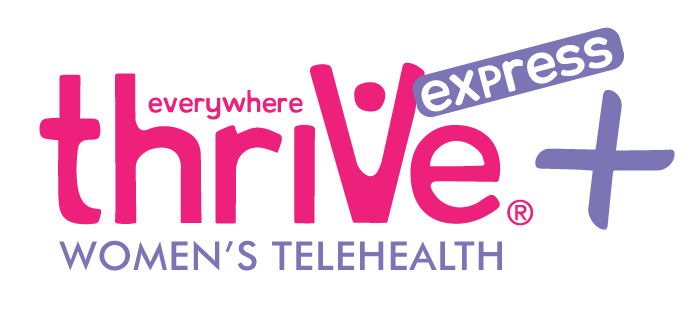This blog was updated April 2025
STD testing near me
Need info on STD testing near you? We understand — and know it might not be the most comfortable topic to talk about. But really, it’s very important — especially if you’ve been sexually active. In this article, we’ll cover various aspects of STD testing, including why it’s important, common types of STDs, their symptoms, and the different tests available. So, let’s dive right in with some questions and answers.
What is STD testing, and why is it important?
If you’re searching for, “STD testing near me,” we’ve got your back. STD testing, or sexually transmitted disease testing (also called STI testing, or sexually transmitted infection), is a way to check for infections that are spread through sexual contact. It’s essential to be tested because many STIss can be asymptomatic, meaning you might have an infection without showing any signs or symptoms.1
Left untreated, these infections can lead to severe health problems and even affect your reproductive health. And if you’re considering an abortion, knowing your STD status is crucial as some STDs can cause further complications or affect your overall health. ThriVe offers no-cost pre-abortion screenings where you can get the info and testing you need.
What are some common types of STDs, and what are their symptoms?
There are several common STIs, each with its own set of symptoms. Here are a few:
– Chlamydia: Symptoms can include pain or discomfort during urination, unusual discharge, and abdominal pain. Chlamydia can cause fever, vaginal discharge and rectal pain, discharge, or bleeding when it’s present in those areas. However, many people with chlamydia have no symptoms at all.1
– Gonorrhea: Symptoms may include similar ones to chlamydia, such as painful urination and discharge. Gonorrhea can also cause sore throat, rectal discomfort, and eye infections.1
– HIV (Human Immunodeficiency Virus): Looking for, “STD testing near me?” The only way to know you have HIV is to be tested. Early symptoms can be flu-like and include fever, fatigue, and swollen lymph nodes. However, HIV can stay asymptomatic (no symptoms) for years.1
– Herpes: Symptoms include painful sores or blisters in the genital or oral area. Some people may experience flu-like symptoms during their initial outbreak.1
– HPV (Human Papillomavirus): HPV often doesn’t cause symptoms but can lead to genital warts and increase the risk of certain cancers.1
– Syphilis: This infection can progress through various stages, with symptoms ranging from sores, rashes, and fever in the early stages to severe organ damage in later stages if left untreated.1
What types of tests are available for STD testing?
STI tests come in different forms, including blood tests, urine tests, and swabs. If you’re wondering “Where can I go to get STD testing?” ThriVe can provide testing at no-cost. Testing is easy and convenient. Here are some ways patients are tested:
– Blood Tests: These tests look for antibodies or other markers of infection in your blood. They are commonly used for diseases like HIV and syphilis.2
– Urine Tests: These tests detect bacteria or viruses in your urine. They are commonly used for chlamydia and gonorrhea testing.2
– Swabs: Swab tests involve taking a sample with a cotton swab from various areas like the throat, genitals, or rectal area, depending on the suspected infection. Swabs are used for testing diseases like HIV, herpes, gonorrhea, and HPV.2

Where can I get STD testing done, and is it confidential?
You can get STD testing done at various healthcare facilities like ThriVe and private medical practices. Some cities also have specialized sexual health clinics that offer STD testing services. It’s essential to know that STI testing is confidential. Medical professionals, like those at ThriVe, are bound by law to keep your information private. We’re non-judgmental and here to help you, not to make you feel uncomfortable or embarrassed. You should always be treated with respect by a care provider when finding STD testing near me.
How often should I get an STI test?
Anyone who has had sex is at risk for an STD,1 even if it was in the past. Once you’ve been tested and treated, it’s possible to contract an STD again if you’re sexually active. The only way to completely avoid STDs is to delay sex until you’re in a committed monogamous relationship like marriage.
Here’s when you should seek STD testing:
– If you have been sexually active, even if it was in the past.
– If you think you might be pregnant, it’s important to get an STD test — even if you’re considering having an abortion. We offer no-cost pregnancy tests and STI tests as part of a pre-abortion screening.
Remember that these are general guidelines, and it’s important to talk with a healthcare professional about your specific situation. Keep in mind that avoiding risky sexual behavior is the best way to escape the pain and discomfort of STIs and the concern of getting tested and unplanned pregnancies
What happens if an STD is left untreated?
Find STD testing near me to get treated as soon as possible. If left untreated, STIs can have serious consequences. Here are a few examples:
– Chlamydia and Gonorrhea: These infections can lead to pelvic inflammatory disease (PID) in women, which can cause infertility and chronic pelvic pain. In men, untreated gonorrhea can lead to epididymitis, which can affect fertility.
– HIV: Untreated HIV can progress to AIDS (Acquired Immunodeficiency Syndrome), a condition that severely weakens the immune system, making the body vulnerable to opportunistic infections.1
– Herpes: Herpes is a disease that can cause painful outbreaks and increase the risk of transmitting other STIs to sexual partners.3
– HPV: Some strains of HPV can lead to genital warts and an increased risk of cervical cancer in women.1
– Syphilis: Untreated syphilis can progress through various stages and affect multiple organs, including the heart and brain. Late-stage syphilis can be life-threatening.1
Getting tested early, and especially avoiding risky sexual behavior, can prevent these complications. Come see us to get no-cost STD testing.

What should I do if I test positive for an STD?
If you’ve found STD testing near me and receive a positive test result for an STD, it’s important to follow your healthcare provider’s guidance. They will discuss treatment options with you, which may include antibiotics, antiviral medications, or other therapies, depending on the infection. We can often provide treatment at low-cost or no cost after your ThriVe appointment! It’s crucial to notify any sexual partners so that they can also be tested and receive treatment if necessary. Remember that having an STD is very common, and these infections can affect anyone who’s been sexually active. Seeking treatment is responsible and helps prevent the spread of STDs.1
What’s the most effective way to prevent STDs?
The only fool-proof way to prevent STDs is by delaying any sexual contact until you are ready for a committed, long-term, monogamous relationship. When you make safe sexual choices, you can feel confident and in control of your health and future. Remember that you have the right to make decisions about your own body and sexual activity that align with your values and beliefs.
STD testing is an important part of keeping yourself healthy. If you’ve been sexually active, come see us at ThriVe to get no-cost STD testing, with no judgment. We want you to feel confident and healthy.
Sources:
1https://www.mayoclinic.org/diseases-conditions/sexually-transmitted-diseases-stds/in-depth/std-symptoms/art-20047081
2https://www.mayoclinic.org/diseases-conditions/sexually-transmitted-diseases-stds/in-depth/std-testing/art-20046019
3https://www.mayoclinic.org/diseases-conditions/genital-herpes/symptoms-causes/syc-20356161




